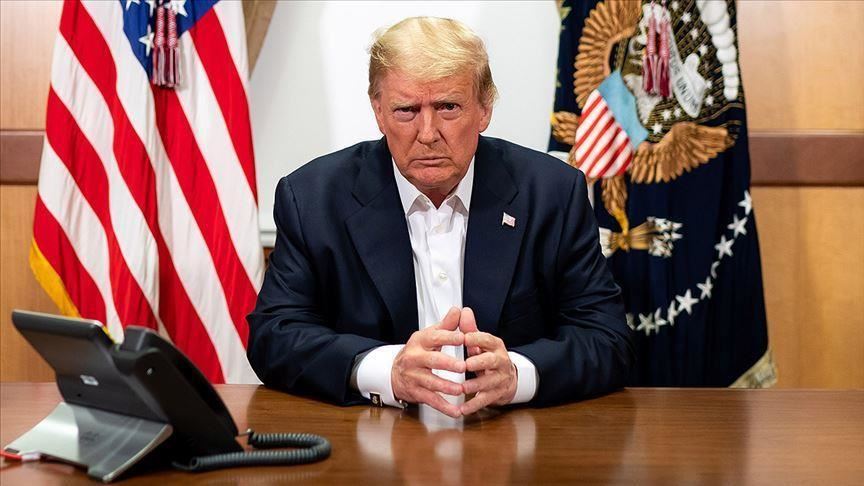
GAZA CITY, Palestine
Palestinians mark the 103rd anniversary of the Balfour Declaration – a document that laid the groundwork for Israel's creation, amid a dwindling support for the Palestinian struggle against the decades-long Israeli occupation.
The anniversary comes after the United Arab Emirates (UAE), Bahrain and Sudan normalized their relations with Israel, in violation of the 2002 Arab Peace Initiative that stipulates Israeli withdrawal from lands occupied during the 1967 Middle East war for establishing normal ties.
US President Donald Trump’s so-called “deal of the century” has further diminished Palestinian hopes for restoring their rights endorsed by UN resolutions.
Palestinian observers opine that the goal of Trump’s plan was similar to that of the Balfour Declaration in seeking to undermine the inalienable rights of the Palestinian people.
“The Balfour Declaration was originally meant to serve Britain’s colonial project in the Middle East region,” Palestinian analyst Abdul Majid Suwailem told Anadolu Agency.
“The Declaration aimed to divide the Arab world and create a buffer state that separates the Levant from Egypt, and get rid of the Jewish presence in the West.”
Suwailem said that Britain “considered the Arab unity a threat to its future colonial project”.
Mohsen Salih, the director of Lebanon-based Al-Zaytouna Centre for Studies and Consultation, criticized Britain’s partial fulfillment of the Balfour Declaration in which it supported the establishment of a national home for the Jews in Palestine while ignoring the rights of the Palestinians, who were the vast majority.
Upon Britain’s withdrawal from Palestine in 1948, Palestinian lands were captured by Zionist groups that expelled hundreds of thousands of Palestinians from their lands and proclaimed the creation of the State of Israel, an incident described by the Palestinians as the "Nakba."
At that time, three-quarters of Palestine came under Israeli control, while Jordan ruled the West Bank and Egypt administered the Gaza Strip.
In 1967, Israel occupied the West Bank including East Jerusalem, the Gaza Strip alongside Egypt’s Sinai Peninsula, and the Syrian Golan Heights.
After the signing of the Oslo Agreement between Israel and the Palestine Liberation Organization (PLO) in 1993, the main cities in the West Bank (excluding Jerusalem) and the Gaza Strip were handed to the Palestinian National Authority.
Between Balfour and Trump
Political analyst Wadih Abu Nassar sees similarities between the Balfour Declaration and Trump’s plan in the fact that the two sides do not own the land, but still offer it as a “gift” to Israel.
"Britain gave the Jews parts of Palestinian land in spite of the fact that they don’t own the land,” Abu Nassar said. “Today, Washington gives Jerusalem and parts of the West Bank to Israel even though it does not own [the lands]."
He said another similarity between the Balfour Declaration and Trump’s plan is the difficult conditions enforced on the Palestinian people.
"The Arabs [in Palestine] are very vulnerable, marginalized, dispersed, and lack a political strategic vision and ability to confront plots against them,” he said.
According to Abu Nassar, Trump’s plan seeks to dismantle the Arab region – the same way the Balfour Declaration did – by pushing for normalization of relations between Arab states and Israel.
Abu Nassar believes that the normalization agreements seek to preserve America’s influence in the Middle East and curb the role of China and Russia in the region, similar to the Balfour Declaration’s aim to preserve the British presence in the region.
Under Trump, Washington recognized Jerusalem as the capital of Israel, cut off aid to the Palestinians and the United Nations Relief and Works Agency for Palestine Refugees in the Near East (UNRWA), recognized Israeli settlements in the West Bank as legitimate, and recognized Tel Aviv's sovereignty over the occupied Syrian Golan Heights among others.
Abu Nassar, however, sees some differences in the political situation of the Jews during the Balfour Declaration and at present.
“The Jews during the Balfour Declaration period were dispersed and lived in a state of fear and anxiety about their fate and their political status, but today they live in a strong state," Abu Nassar explained.
He also believes that both the Balfour Declaration and Trump’s plan are counterproductive to Israel as they have left the self-proclaimed Jewish state “in hostility with millions of Arabs and Muslims”.
*Ibrahim Mukhtar contributed to this report from Ankara








